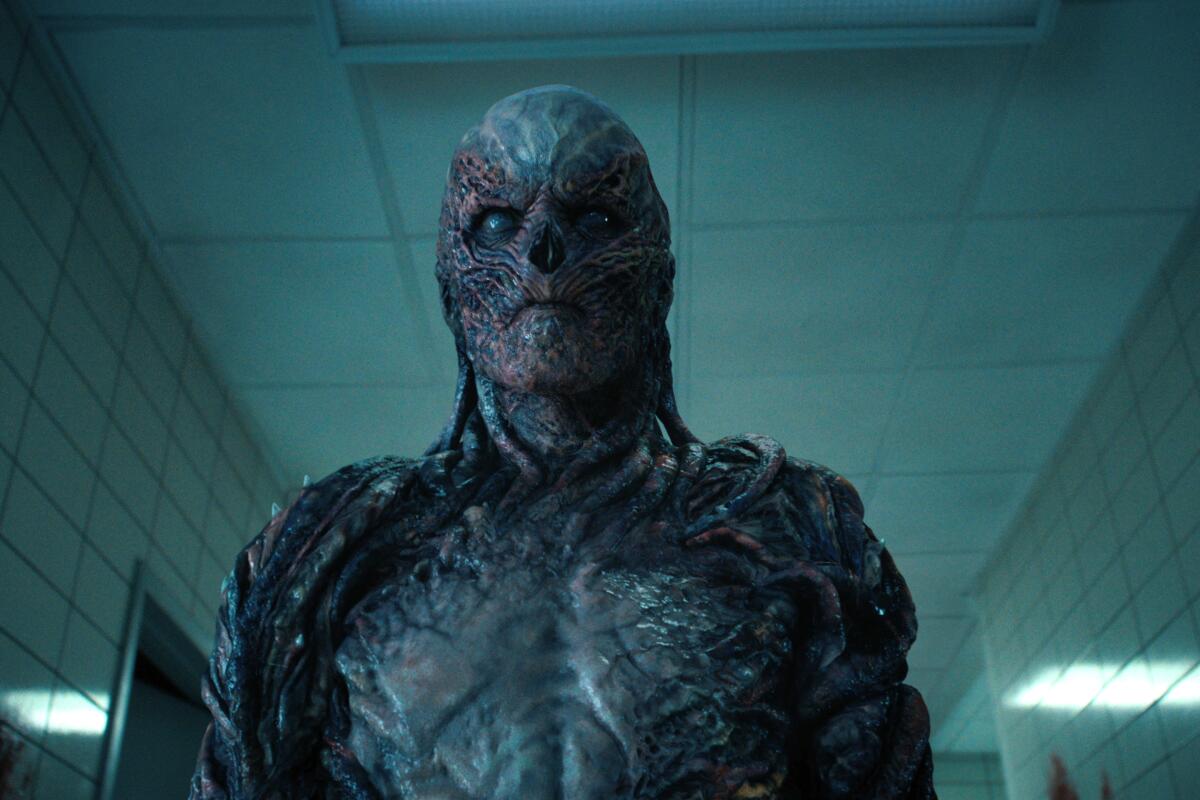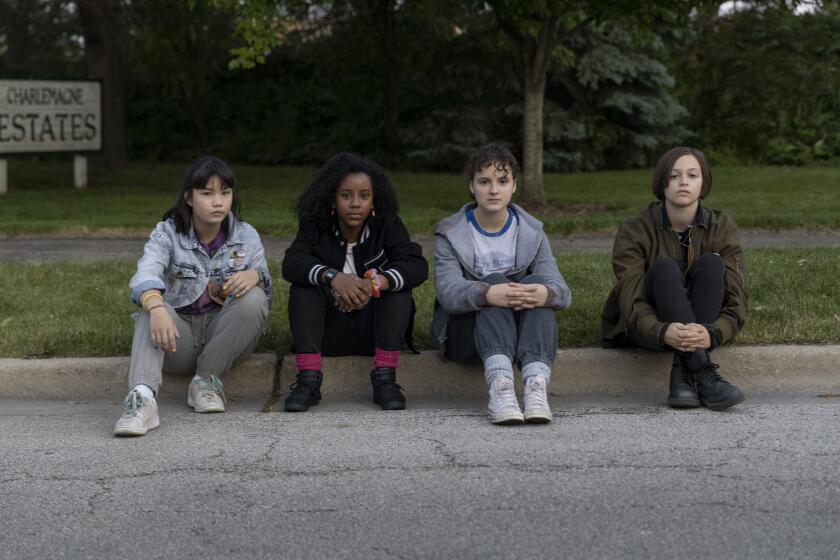The devil is literally in these details for the villainous Vecna of ‘Stranger Things’

Barrie Gower confesses he was quite anxious before the Season 4 release of “Stranger Things.” The special makeup effects department head had a lot riding on the premiere: His team had been tasked with bringing to life the series’ villain Vecna. He needn’t have worried. Their efforts earned them an Emmy nomination.
But before molds were poured and adhesive dried, in developing the monster, show creators Matt and Ross Duffer drew inspiration from iconic villains of their childhood. Pinhead, Pennywise and Freddy Krueger among them. (Robert Englund, who famously portrayed the sadistic “Elm Street” killer, appears in “Stranger Things” as Victor Creel). The result is a meaner, darker, more menacing threat to those in small-town Hawkins, one who mentally traumatizes its victims through trance-like spells before killing them in truly horrifying fashion. Bones break, eyes are gouged out. The design process took off with concept art from Michael Maher Jr., who serves as VFX supervisor (also Emmy-nominated). Those blueprints were sent to Gower in the U.K., where the team decided early on that Vecna would be made as a multi-piece prosthetic build over something like a rubber suit because of its sleek, humanoid shape. Next came casting Jamie Campbell Bower in the role, over the other 176 actors who auditioned.
“We knew [Vecna] needed to feel iconic in a cast that already has a good bunch of iconic characters, and Jamie’s energy, even with scenes that weren’t from the show yet [fake sides were provided for the actors], immediately felt like potential icon level,” says casting director Carmen Cuba, who’s been nominated with an Emmy too. “Jamie just nailed the initial scenes, had an intensity but also a playfulness that came through clearly. He got us very excited right from the start.”
Campbell credits landing the role to the help of creating a mood board. “I became immediately invested in this character,” he says. “When you stumble across a project, and it feels right, there’s an energy that surrounds that and I felt that from the word ‘go.’ I felt utterly energized by it.”
With Campbell pinned as the antagonist, the makeup team created a full body cast from plaster and started the build. “We sculpted Vecna over the top in modeling clay and then figured out where we needed to split it up in a jigsaw of prosthetic pieces,” says Gower. About 25 overlapping sections were created to make the molds of Vecna, which were injected with different materials depending on the piece. Silicone medical gel was used for his chest and back for its translucency when painting and it moves without buckling. Foam latex made up the thicker areas like his arms and legs because it’s lightweight while latex formed the bottom of his feet so it didn’t wear out as he walked.
A quartet of 12-year-olds gets caught between warring time travelers in ‘Paper Girls,’ one of the year’s best TV shows.
For Vecna’s long, menacing left hand, which he uses to levitate his victims before penetrating their skulls, a mechanical glove with finger extensions was created that was covered with a foam latex sleeve. “We were worried with the long fingers that Jamie would get tired, but after an early test wearing the glove for five hours, he had no complaints,” notes Gower.
Finishing the prosthetics consisted of airbrushing a moody array of purples, blacks and bruise-like tones based on the concept art. “We looked at references from sea life and the animal kingdom for the color scheme,” Gower says. And the team couldn’t skid by with a single version of Vecna. They made about 25 duplicate sets since removing the pieces from Campbell’s body at the end of the day destroys the delicate vinyl edges.
Applying everything to Campbell’s body is an exacting process that took about eight hours at first go. To find his character, the actor would listen to heavy metal and thrash metal music. The initial transformation was also a teaching point for Campbell. “The prosthetics are not as sensitive as skin so I felt I had to move my face more with them on. And then I have these fake teeth that changed how I was going to talk. I thought about how I can use that, so I started to grind my own teeth because there’s a layer of plastic between the two of them.” The result produced a low, gravelly voice that’s about as ominous as Vecna’s appearance.
While Vecna is a practical villain, visual effects stepped in to add subtle flavor. “We applied this effect called UV Crawl, which is a texture movement along the vines of Vecna’s body to give it this eerie sense of creepy-crawly vine movement,” says Maher. “So every shot he is in is a visual effects shot because we matched every single vine on his body from the practical suit.” VFX also created previs for all the CG camera moves for when Vecna kills his victims and generated full digital body doubles of the characters as he snaps and twists their bones and sends them crashing to the ground.
Gower says the response has been overwhelming. “We never had this kind of reaction to a character. There’s so much love we’re so grateful for. It’s all down to our team and we’re really pleased the work has been recognized.”
More to Read
From the Oscars to the Emmys.
Get the Envelope newsletter for exclusive awards season coverage, behind-the-scenes stories from the Envelope podcast and columnist Glenn Whipp’s must-read analysis.
You may occasionally receive promotional content from the Los Angeles Times.











